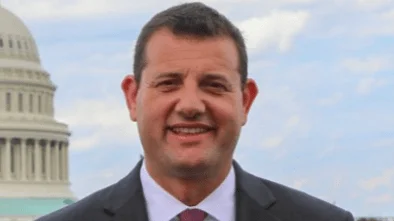Congressman David G. Valadao, District 22 | Official U.S. House headshot
Congressman David G. Valadao, District 22 | Official U.S. House headshot
WASHINGTON – Today, Congressman David G. Valadao (CA-22) questioned Secretary of Agriculture Thomas Vilsack on disaster relief for Central Valley dairy producers during a House Appropriations Committee hearing. Valadao expressed his concerns about the lack of assistance provided to California dairy farmers, stating, "There has been no similar action taken to help reimburse our California producers for feed losses, relocation of livestock, or shelter-in-place procedures."
During the hearing, Secretary Vilsack defended his actions, stating that he does not have the authority to assist dairy producers using the Commodity Credit Corporation (CCC). In response, Valadao challenged this stance, highlighting the disparity in support compared to previous instances where assistance was swiftly provided to dairy farmers in Puerto Rico after hurricanes in 2017. Valadao questioned, "Why are they being left behind?" emphasizing the need for immediate aid to the Central Valley dairy farmers.
Valadao had previously introduced legislation to grant the Secretary of Agriculture explicit authorities to assist dairy producers using CCC funds, further underscoring his commitment to supporting the struggling dairy industry in California.
In 2017, Puerto Rico's dairy sector received significant support from the USDA through the CCC, with up to $12 million allocated to aid dairy producers. This assistance included vouchers covering 100% of estimated feed costs per head for 30 days. However, no similar action has been taken by the USDA following the historic flooding in California's Central Valley, where dairy producers have faced substantial challenges such as property damage, feed losses, and transportation costs for moving livestock.
The exchange between Congressman Valadao and Secretary Vilsack sheds light on the pressing need for immediate assistance to Central Valley dairy farmers who continue to grapple with the aftermath of natural disasters.




 Alerts Sign-up
Alerts Sign-up